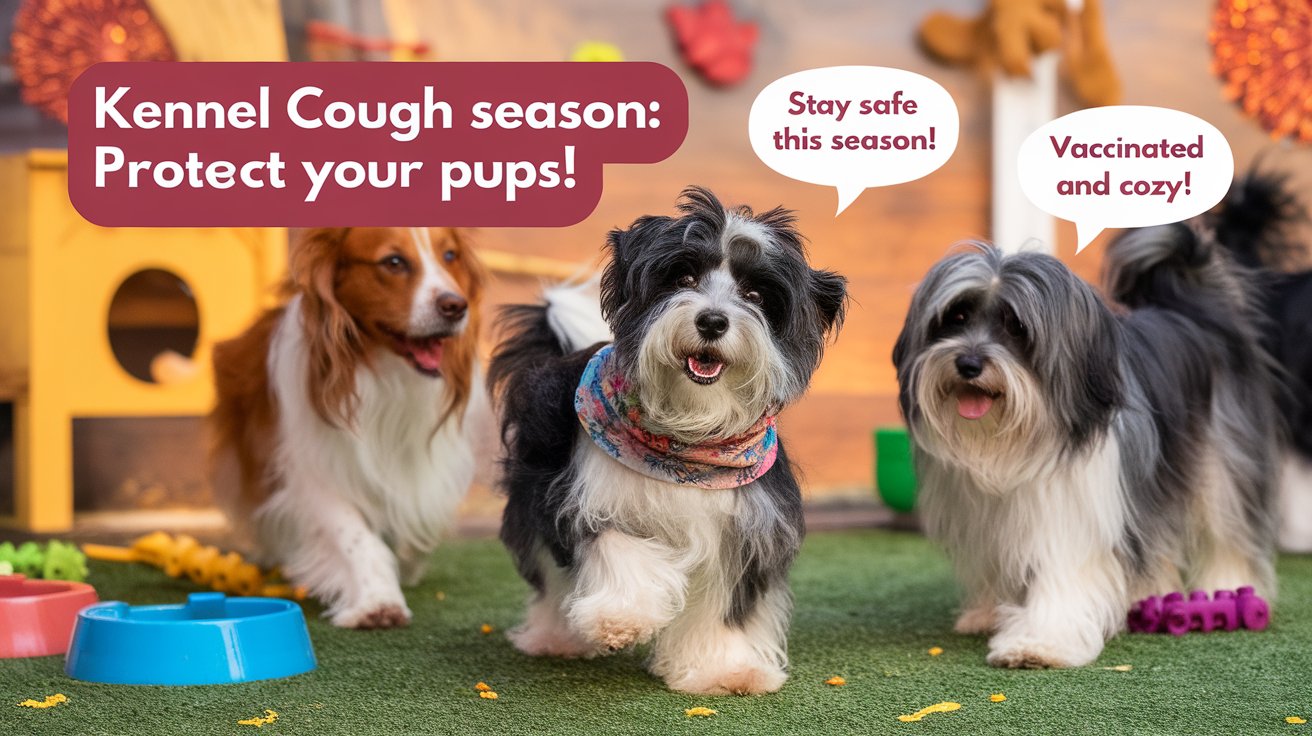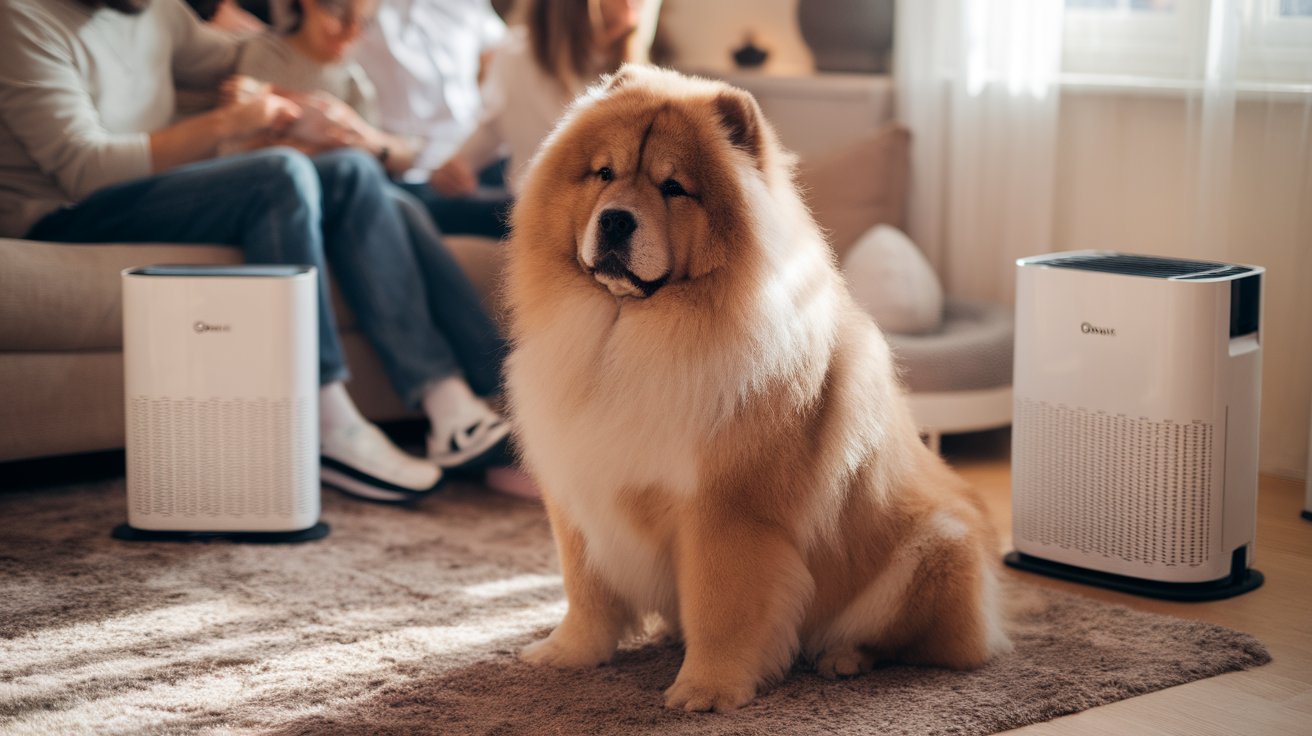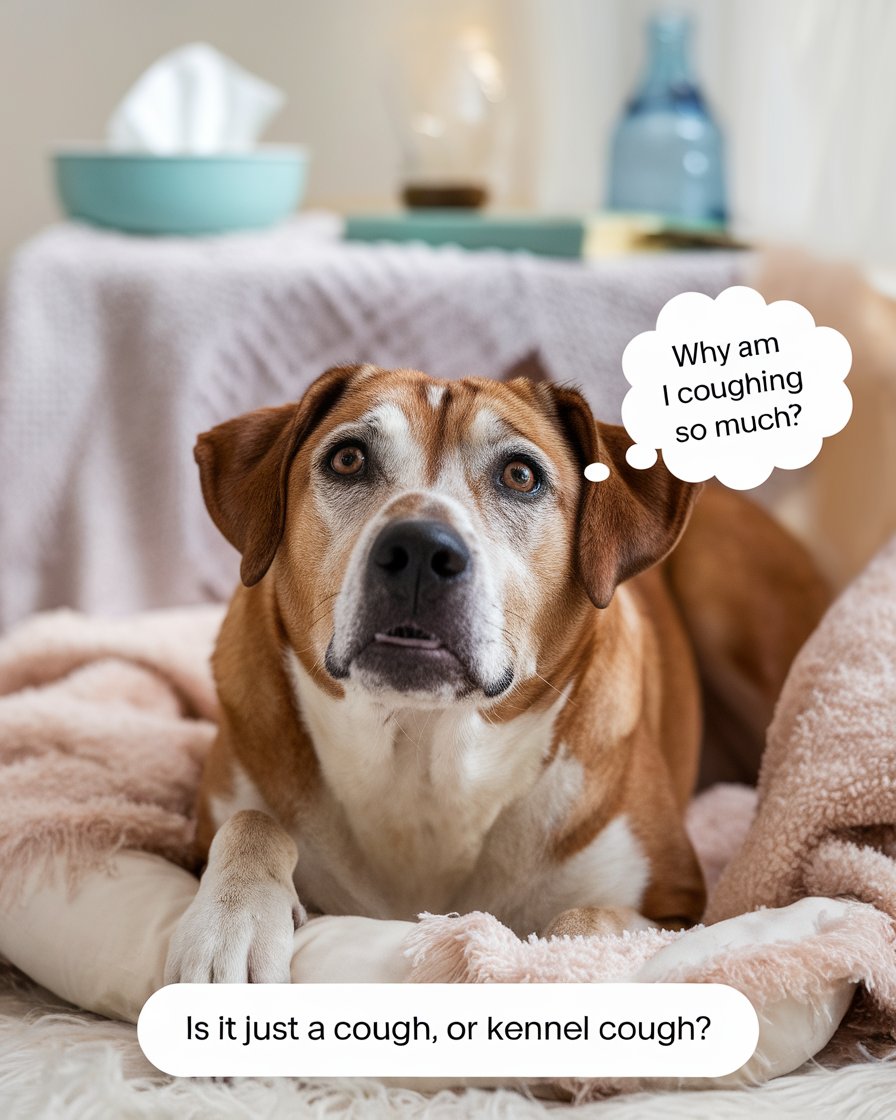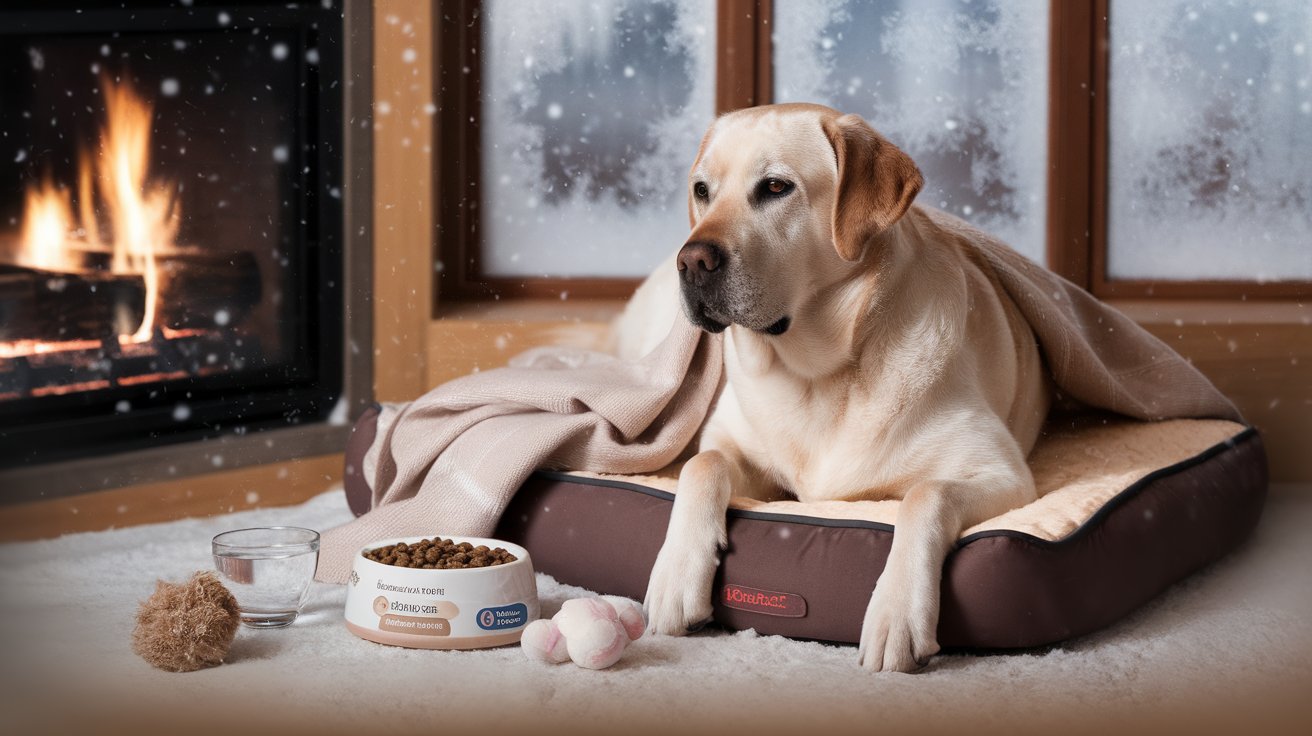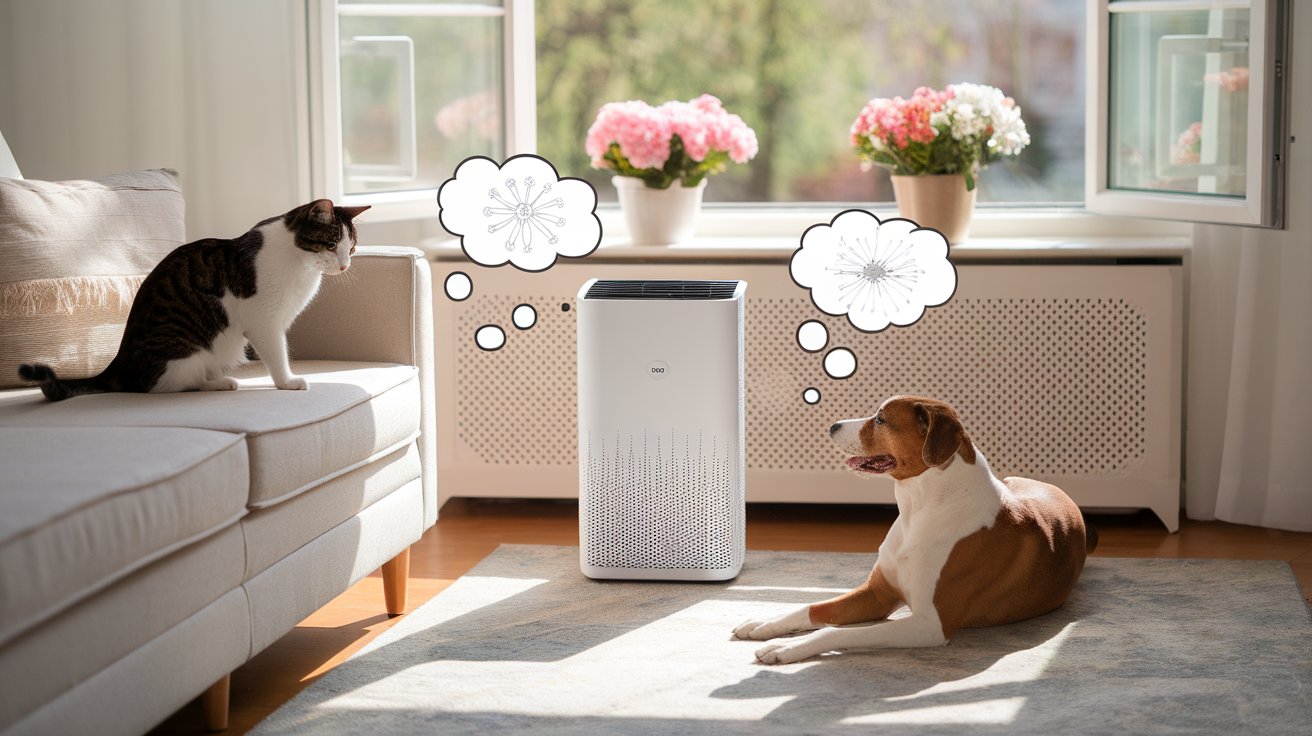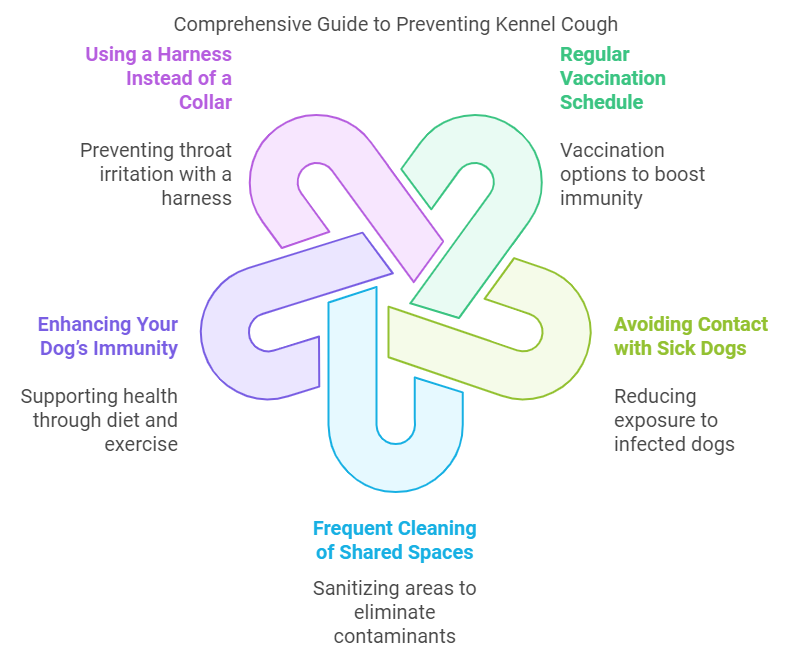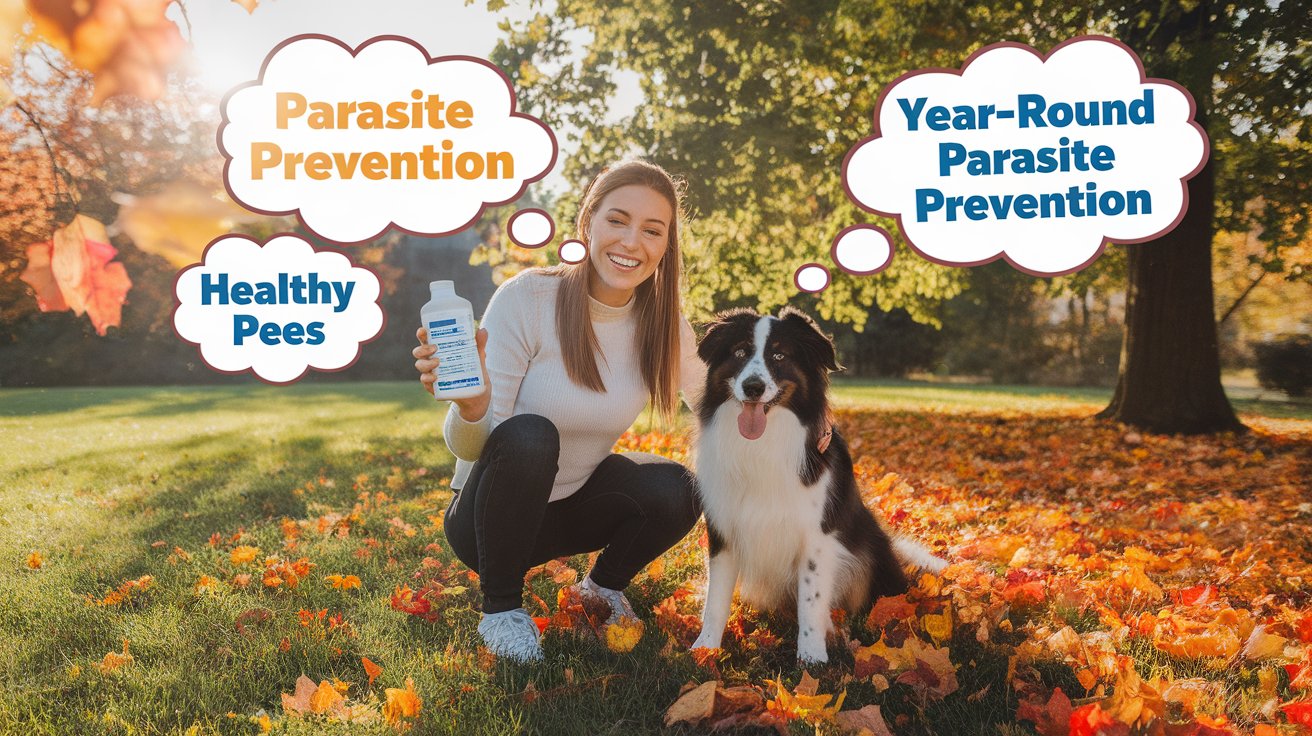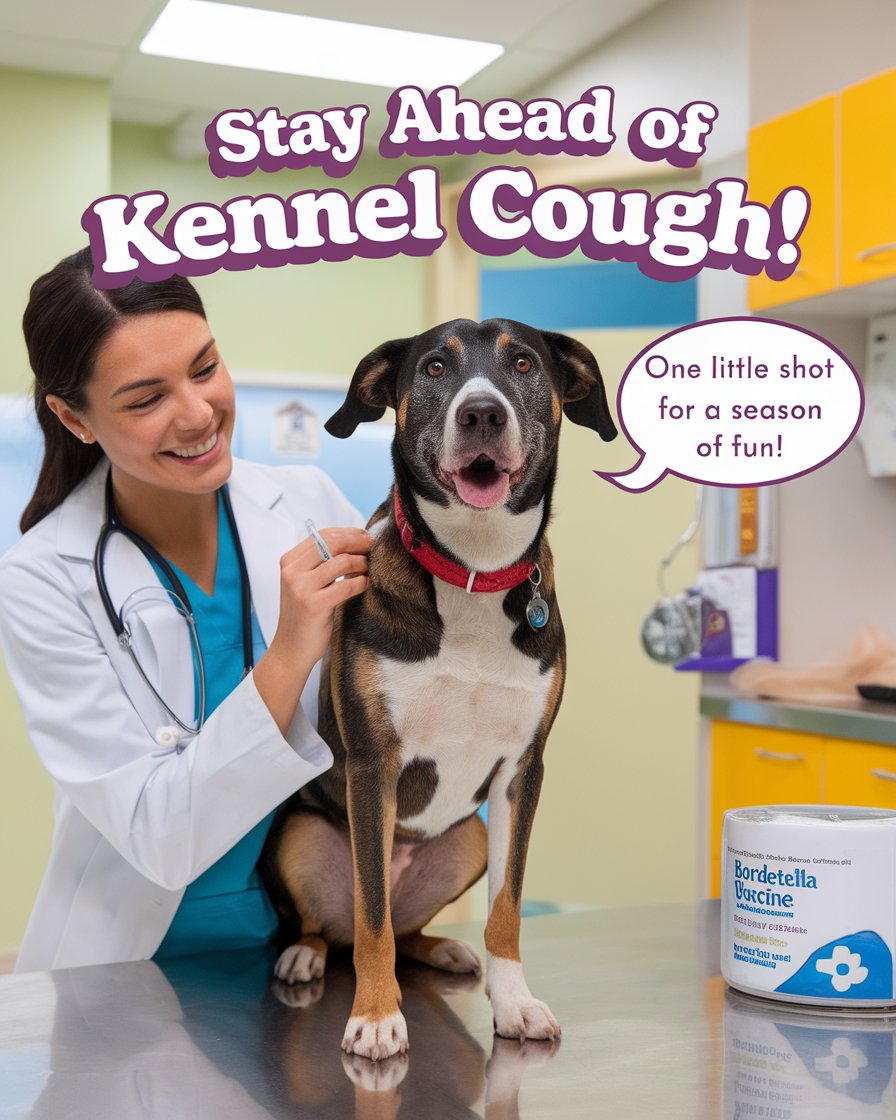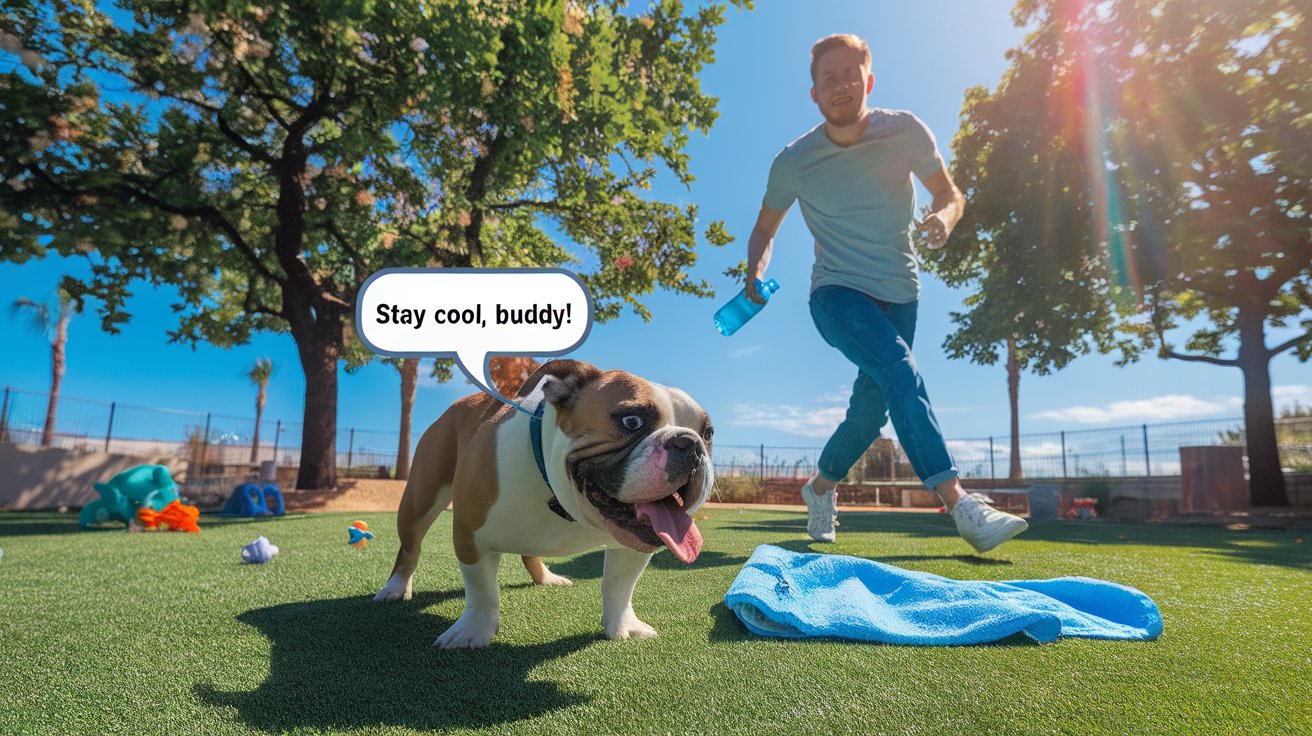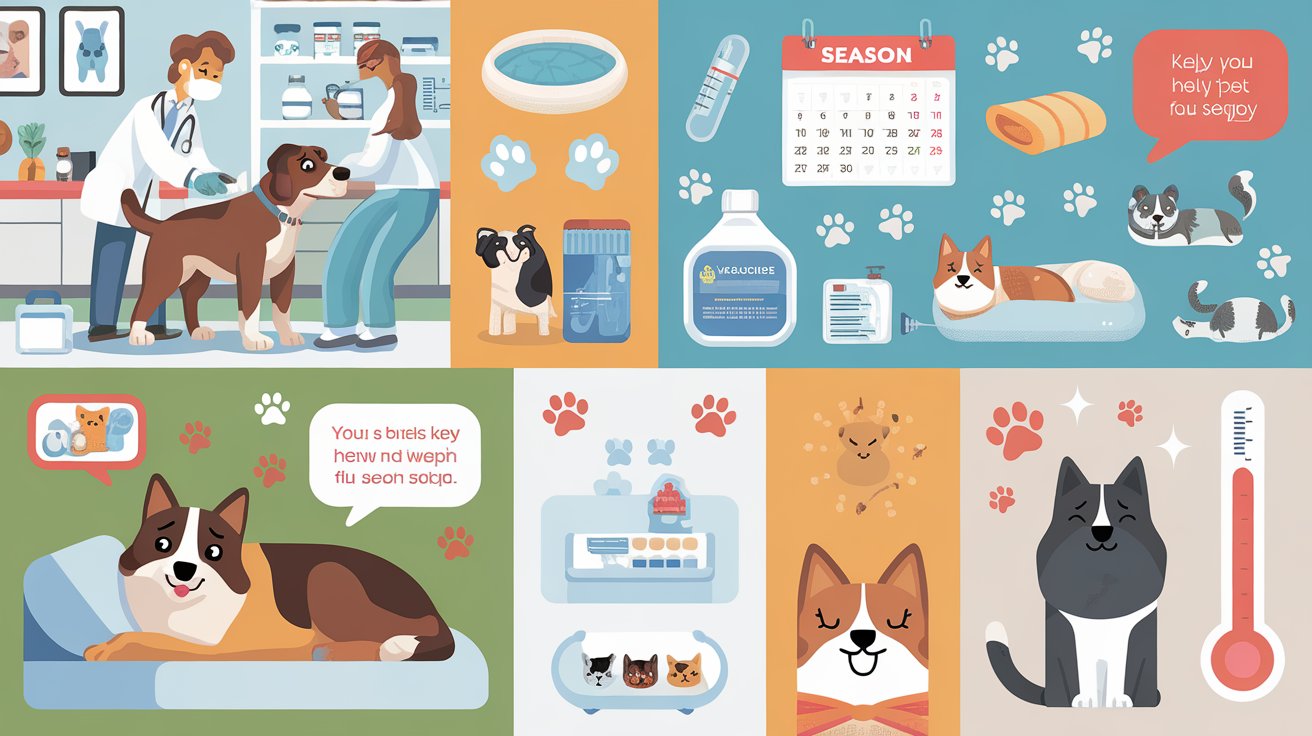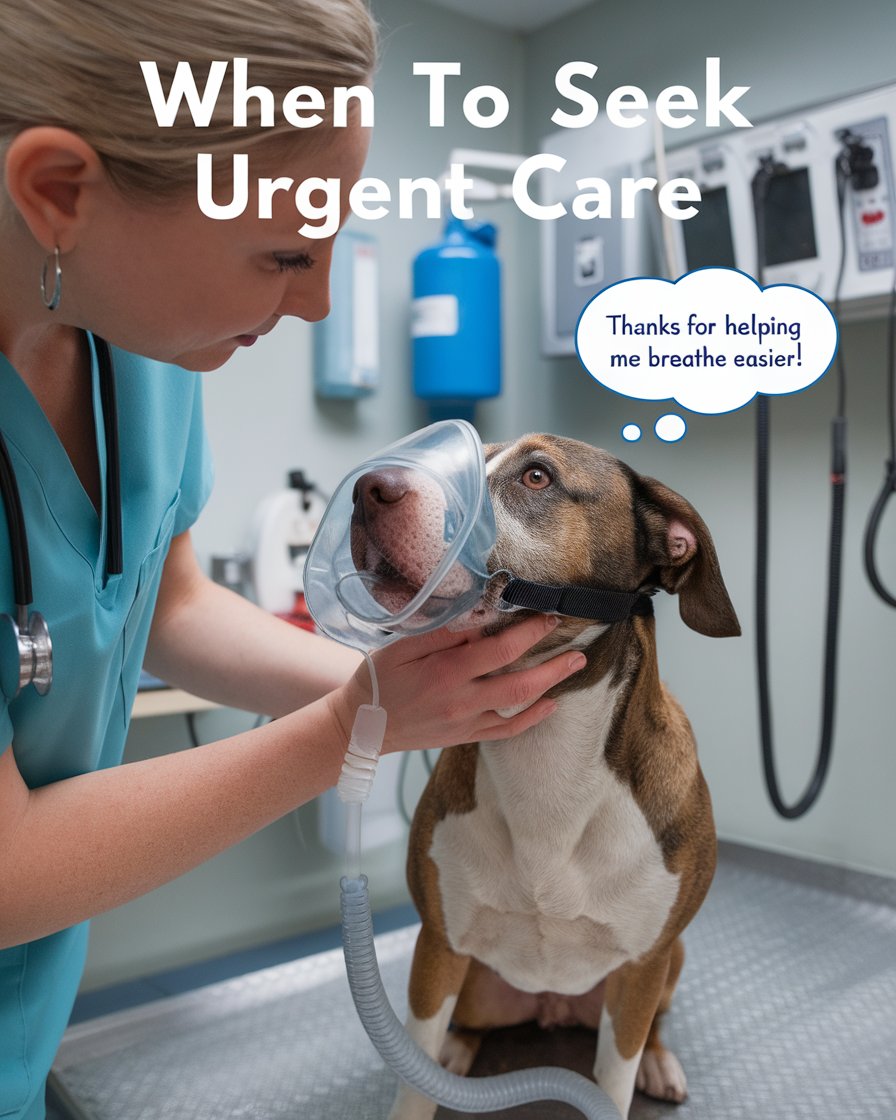Introduction
Kennel cough is a highly contagious respiratory condition affecting dogs, known for causing a distinctive honking cough that can sound alarming to pet owners. This condition typically arises when dogs are in close contact with others, especially in environments like boarding kennels, dog parks, or grooming centers. Recognizing the symptoms early can help prevent its spread and ensure that affected dogs receive timely care, reducing the chance of complications.
By taking preventative measures, such as vaccinating against the Bordetella bacterium and maintaining hygiene in shared spaces, dog owners can significantly lower the risk of infection. For those dogs that do contract kennel cough, knowing when to seek veterinary care and how to provide comforting home care can make a big difference in recovery. This guide offers a comprehensive look at kennel cough symptoms, prevention, treatment, and home care tips to help keep dogs healthy and comfortable.
Key Takeaways
- Early recognition of kennel cough symptoms, like a honking cough, can prevent complications.
- Vaccination, particularly against Bordetella, plays a critical role in reducing kennel cough risk.
- Hygiene practices in shared spaces are essential to preventing the spread of kennel cough.
- Severe cases with labored breathing or lethargy need immediate veterinary care.
- Comforting measures and close monitoring aid in at-home recovery for dogs with mild kennel cough.
- Following veterinarian guidance ensures safe and effective treatment for affected dogs.
Recognizing Key Symptoms of Kennel Cough in Dogs
Kennel cough in dogs is often marked by a distinct, honking cough that sounds similar to a goose honk, making it easily identifiable for dog owners. This persistent cough, along with symptoms like retching, sneezing, and nasal discharge, are early indicators of this respiratory illness. Dogs may experience coughing that disrupts their sleep and causes them noticeable discomfort, while some dogs show signs of mild fever and reduced energy. Recognizing these symptoms early can help prevent the illness from worsening, especially if the dog has had recent exposure to large groups or shared environments, such as kennels or dog parks. Owners should monitor symptoms closely, as prompt care can prevent complications.
Persistent Cough and Other Respiratory Symptoms
Dogs with kennel cough often develop a persistent cough that sounds honking or dry, which is one of the primary indicators of this condition. Alongside coughing, other symptoms may include nasal discharge and mild sneezing, which signal respiratory distress. These symptoms can cause discomfort and may worsen if left untreated. Monitoring these signs closely helps dog owners determine if the cough is kennel cough or a minor irritation.
Identifying Worsening Symptoms in Kennel Cough Cases
As kennel cough progresses, owners should watch for signs like sleep disturbances due to coughing, reduced energy, and visible nasal drainage. In cases where the cough disrupts daily routines or appears to cause significant discomfort, veterinary advice should be sought. Early intervention can prevent further complications and aid faster recovery for the dog.
Practical Steps to Prevent Kennel Cough in Dogs
1. Regular Vaccination Schedule
Vaccination is one of the most effective ways to prevent kennel cough, especially for dogs that spend time in social environments. Bordetella vaccines, available in oral, nasal, or injectable forms, help strengthen a dog’s immunity against the infection.
2. Avoiding Contact with Sick Dogs
Keeping your dog away from other dogs showing symptoms of respiratory illness reduces the risk of exposure to kennel cough. This is particularly important in areas with frequent dog traffic, such as parks and grooming facilities.
3. Frequent Cleaning of Shared Spaces
Sanitizing areas where dogs interact, like kennels, play areas, and even food and water dishes, helps to remove potential contaminants. Use pet-safe disinfectants regularly to keep these environments hygienic.
4. Enhancing Your Dog’s Immunity
A strong immune system can help dogs fight off infections more effectively. Providing a balanced diet, plenty of exercise, and regular vet check-ups supports overall health and resilience.
5. Using a Harness Instead of a Collar
If a dog has kennel cough or any other respiratory issues, switching to a harness helps reduce pressure on their throat. This small adjustment can prevent additional irritation to the respiratory tract.
Effective Prevention Methods to Protect Dogs from Kennel Cough
Preventing kennel cough is best achieved through a combination of regular vaccinations and environmental hygiene practices. The Bordetella vaccine is the most common preventative option and is often recommended for dogs who frequent high-risk areas, such as boarding facilities, grooming centers, and dog parks. Vaccines can significantly reduce the risk of contracting kennel cough, especially when administered regularly. Beyond vaccination, owners should avoid exposing their dogs to animals showing signs of illness and practice good hygiene by sanitizing shared spaces and frequently touched surfaces. Additionally, keeping a dog’s immune system strong with proper nutrition and exercise also plays a role in lowering susceptibility to infection.
The Role of Vaccination in Preventing Kennel Cough
Vaccination, particularly against Bordetella, plays a critical role in reducing kennel cough risks. The vaccine is often recommended for dogs frequently exposed to other animals, such as in kennels, dog parks, or boarding facilities. By ensuring regular booster shots, owners can strengthen their dog’s immunity and reduce the likelihood of infection. The Bordetella vaccine comes in oral, injectable, and nasal forms, providing flexible options for dogs of various ages and health conditions.
Practical Hygiene Tips for Reducing Exposure
Maintaining a clean environment is essential for preventing the spread of kennel cough, especially in multi-dog households or frequent social settings. Simple steps like disinfecting shared spaces, cleaning bedding regularly, and washing hands after handling other dogs can significantly reduce exposure. Additionally, avoiding sick animals and ensuring dogs have robust immune support through nutrition and exercise contribute to effective prevention strategies.
Case Study: Successful Prevention of Kennel Cough in a High-Risk Boarding Facility
A popular dog boarding facility in a busy urban area implemented strict kennel cough prevention protocols to protect the health of its canine guests. Recognizing the high risk of transmission in a shared environment, the facility required proof of Bordetella vaccination for all incoming dogs. Additionally, staff members followed a daily cleaning regimen that included sanitizing kennels, play areas, and common spaces with pet-safe disinfectants.
Despite frequent high occupancy, the facility observed a significant reduction in kennel cough cases, thanks to these preventive measures. In one instance, a dog owner praised the facility’s strict health policies, noting that her dog, who had previously contracted kennel cough in another kennel, stayed healthy during several stays. This example highlights how vaccination and proactive hygiene protocols can effectively prevent the spread of kennel cough, even in high-risk environments like boarding facilities.
Managing Severe Kennel Cough Cases: When to Seek Veterinary Care
While kennel cough is generally mild, some cases can escalate, leading to severe respiratory distress. Dogs displaying labored breathing, loss of appetite, or lethargy should receive immediate veterinary attention, as these symptoms indicate potential complications. Severe cases might require prescription medications or even hospitalization to manage respiratory symptoms effectively. Early intervention is crucial, particularly for puppies, elderly dogs, or those with weakened immune systems, as they are at higher risk of developing complications. By recognizing when a cough becomes more than just a nuisance, owners can ensure their dog receives the necessary medical attention to support recovery.
Recognizing Emergency Symptoms in Dogs
In severe cases of kennel cough, symptoms like labored breathing, excessive lethargy, or severe loss of appetite signal the need for urgent care. If the dog appears to be struggling to breathe or cannot maintain regular energy levels, veterinary intervention becomes essential. Early action can help avoid complications such as secondary infections or pneumonia, which can pose additional risks, especially for young or senior dogs.
Treatment Options for Severe Kennel Cough
Veterinarians may prescribe antibiotics, antivirals, or other medications to help dogs combat more severe cases of kennel cough. These treatments aim to reduce inflammation, alleviate respiratory symptoms, and target the underlying infection. In certain cases, hospitalization may be required for proper care and monitoring. Understanding treatment options allows owners to make informed decisions and manage severe symptoms effectively.
“An ounce of prevention is worth a pound of cure, especially when it comes to keeping our pets healthy. Regular vaccinations and good hygiene go a long way in preventing conditions like kennel cough.” — Dr. Karen Becker, Veterinarian and Pet Health Advocate
Home Care Tips for Dogs Recovering from Kennel Cough
For dogs recovering from kennel cough, providing a warm, quiet environment helps them feel comfortable and speeds up recovery. Offering soft bedding, gentle activities, and plenty of hydration supports their healing process. Owners should keep an eye on their dog’s symptoms and check for any signs of worsening, like prolonged coughing or lethargy. Over-the-counter cough suppressants might help ease discomfort but should only be used with a veterinarian’s approval. Feeding easily digestible meals can help maintain the dog’s energy while they recuperate. Through attentive care, many dogs recover from kennel cough without significant interventions, although close monitoring remains key.
Comforting Measures for Kennel Cough Recovery
Creating a warm, restful environment for a dog recovering from kennel cough is vital to their healing. Owners can use soft bedding, keep noise levels low, and offer mild activities to keep the dog comfortable. Hydration and easy-to-digest foods are also key to supporting a smooth recovery. With a supportive setting, dogs can recover more comfortably without excessive stress or strain on their respiratory system.
Monitoring and Managing Symptoms During Recovery
Close monitoring of a dog’s symptoms helps detect any sign of worsening conditions, such as an intensifying cough or prolonged lethargy. Over-the-counter cough suppressants can sometimes be beneficial, but they should only be used following a vet’s guidance. If symptoms worsen, owners should contact a veterinarian promptly. Vigilance in recovery can make a significant difference, as early detection of issues allows for timely treatment adjustments.
Conclusion
Kennel cough, while generally mild, requires attention to ensure dogs stay comfortable and avoid complications. Recognizing symptoms early, such as a persistent cough or nasal discharge, helps dog owners act quickly and prevent the illness from worsening. Vaccination and good hygiene in shared spaces remain effective ways to protect dogs, particularly those frequently in social settings.
By staying informed on severe symptoms and following veterinarian guidance for at-home care, owners can support their dog’s recovery and reduce the spread of kennel cough. Whether through preventive actions or responsive care, these steps allow for a healthier and more resilient environment for dogs, keeping kennel cough at bay and promoting overall well-being.

